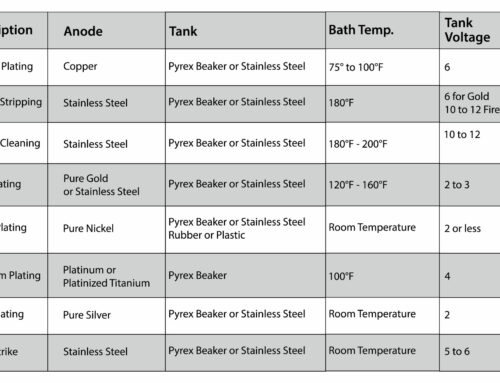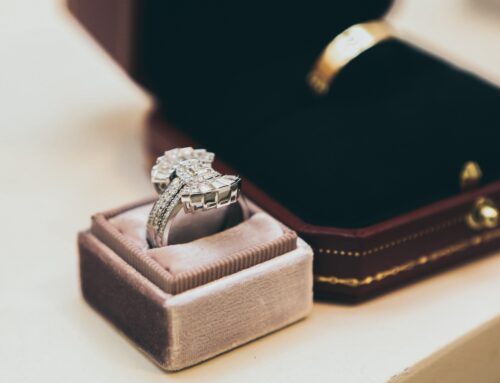Most people are unaware of the role diamonds play in bringing real benefits to people in the countries around the world where diamonds are sourced. Nowhere is this more evident than in Africa. It is also in Africa that this same resource has been used to fund conflict. In 2000, a coalition of governments, non-governmental organizations and the diamond industry worked together to address this issue. In 2002 they established the Kimberley Process Certification System, a United Nations-backed process that has virtually eliminated the trade in conflict diamonds. Today, over 99% of the world’s supply of diamonds are from sources free of conflict.
Buy With Confidence:
As a consumer, you should feel good about your diamond purchase. Ask your friends and family for recommendations to find a jeweler you can trust. Make sure that the jeweler is willing to spend time providing the information you need. A reputable jeweler should:
- Only use suppliers who can provide a guarantee that their diamonds are from sources free of conflict.
- Have a conflict diamond policy.
- Be able to answer a customer’s questions about the topic.
Esslinger and Company’s Conflict Diamond Policy:
Esslinger and Company has written policies in place from suppliers that all of our diamonds are from conflict free sources. We will not knowingly purchase or sell any conflict diamonds.
What are Conflict Diamonds?
Conflict diamonds are diamonds illegally traded to fund conflict in war-torn areas, particularly in central and western Africa. The United Nations defines conflict diamonds as “…diamonds that originate from areas controlled by forces or factions opposed to legitimate and internationally recognized governments, and are used to fund military action in opposition to those governments, or in contravention of the decisions of the Security Council.” These diamonds are sometimes referred to as “blood diamonds.”
Background
Conflict diamonds captured the world’s attention during the extremely brutal conflict in Sierra Leone in the late 1990s. During this time, it is estimated that conflict diamonds represented approximately 4% of the world’s diamond production. Illicit rough diamonds have also been used by rebels to fund conflicts in Angola, Liberia, Ivory Coast, the Democratic Republic of Congo and the Republic of Congo (also known as Congo Brazzaville).
Today, the flow of conflict diamonds has been reduced to considerably less than 1%.
Eliminating Conflict Diamonds
In July 2000, the global diamond industry made clear to the international community its zero tolerance policy towards conflict diamonds. Dedicated to eradicating the trade in conflict diamonds, it worked closely with the United Nations, governments and non-governmental organizations (NGOs) such as Global Witness and Partnership Africa Canada to create the Kimberley Process Certification System. This system was formally adopted in 2003 and guards against conflict diamonds entering the legitimate diamond supply chain. The diamond industry also adopted a voluntary System of Warranties to assure consumers that their diamonds are from sources free of conflict.
Today, 74 governments have enshrined into their national law the Kimberley Process Certification System, and now more than 99% of the world’s diamonds are from conflict free sources. However, even one conflict diamond is one too many. The diamond industry continues to work with governments, NGOs, and the UN to strengthen the Kimberley Process and the System of Warranties.
While diamonds have been used to fund conflict, the problem is not the diamonds themselves but the rebels who exploit diamonds (along with other natural resources) to achieve their illicit goals. The vast majority of diamonds come from countries at peace. These countries have been able to invest the revenue from diamonds into the development of infrastructure, schools and hospitals for the good of the communities in which diamonds are found. These countries include Australia, Botswana, Canada, Namibia, Russia, South Africa and Tanzania.
A Word about the Kimberley Process and Conflict Diamonds:
“Diamonds are a unique resource, evoking beauty and eternal love. In recent years, pictures of maimed children have threatened to overwhelm these traditional positive images, when rebel groups in Africa used diamonds to finance their wars and unspeakable brutalities against civilian populations. Aroused by these conflicts, the international community mobilized to ensure people living in countries with abundant diamond deposits receive the benefits of their patrimony.
Outraged in the late 1990’s that proceeds from diamond sales financed arms purchases and prolonged insurrections in Sierra Leone and Angola which were some of the most brutal of the past decade, the international community acted. By 2003 the international community through the participants in the Kimberley Process, bringing together industry, governments and civil society, mobilized governments to ban trade in rough diamonds funding African conflicts. Called the “Kimberley Process Certification Scheme” the ban ended those African conflicts financed by “blood” diamonds. Based on the respect for human dignity, the negotiators found the following common interests to win support for an international ban on trade in rough diamonds used to finance war and rebellion:
- First, in memory of those who died in Sierra Leone, in Angola, in the Democratic Republic of the Congo and other African countries in conflicts fueled by rough “Conflict Diamonds;”
- Second, to end the killing in on-going conflicts in Africa;
- Third, to save the children of Africa whose lives would be threatened by future conflicts fueled by conflict diamonds
- Fourth, to ensure those countries which depend on diamonds for their development and economic well-being will benefit from their patrimony;
- and Fifth, to assure consumers the diamonds they wish to enjoy are without the taint of conflict.
Through the worldwide implementation of the Kimberley Process Certification Scheme we have begun to fulfill the international community’s obligation to those who have suffered in Africa’s wars by banning the trade in conflict diamonds. We have eliminated conflict diamond financing in Sierra Leone and are committed to bring the proceeds from the diamond trade to benefit the people of Sierra Leone, Angola and Liberia as well as all other diamond producing countries such as Botswana to help themselves support economic development of their countries.”
– Ambassador J.D. Bindenagel, Former U.S. Special Negotiator for Conflict Diamonds






Leave A Comment